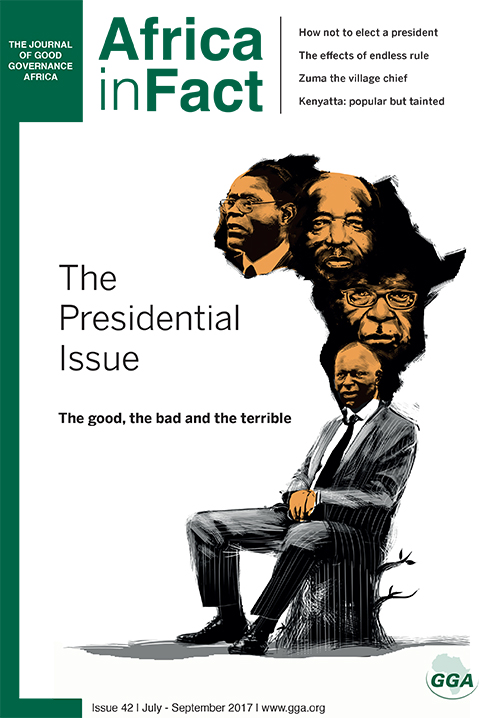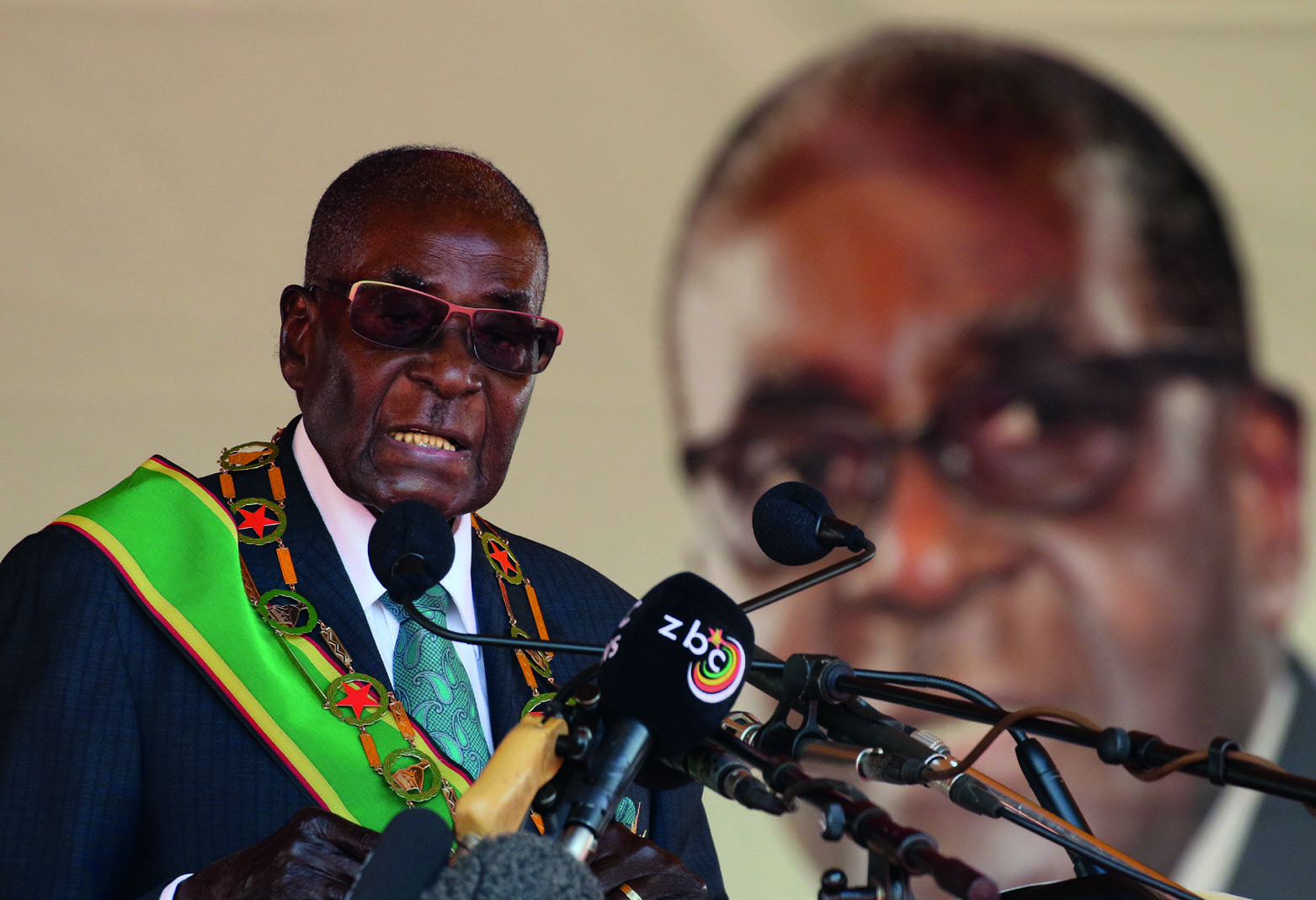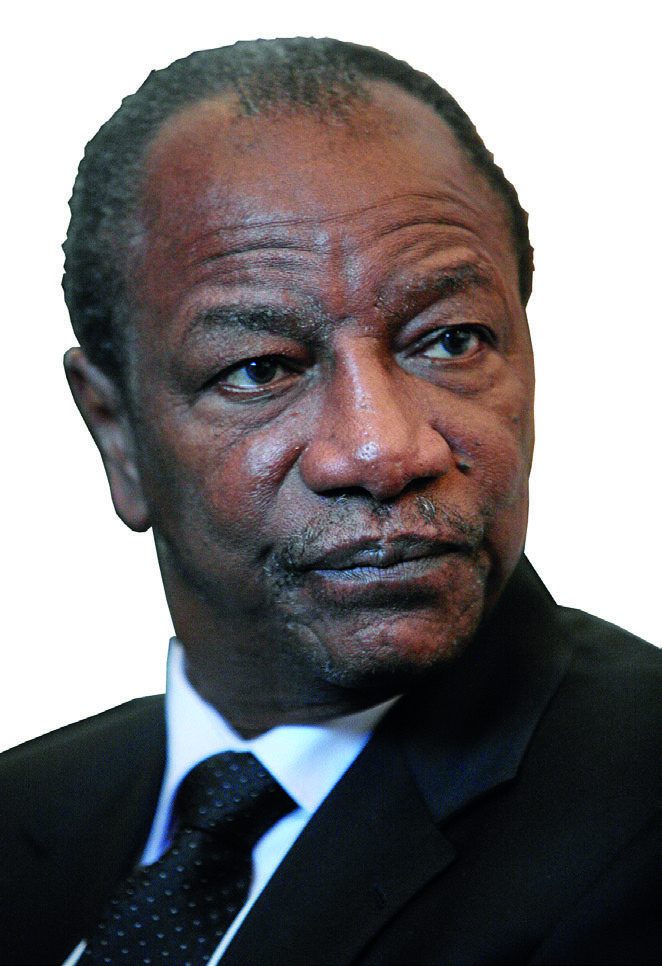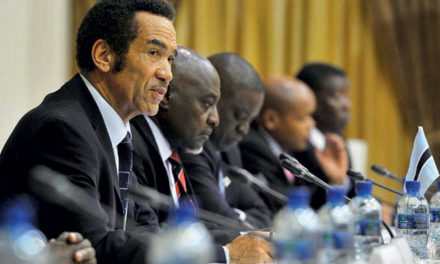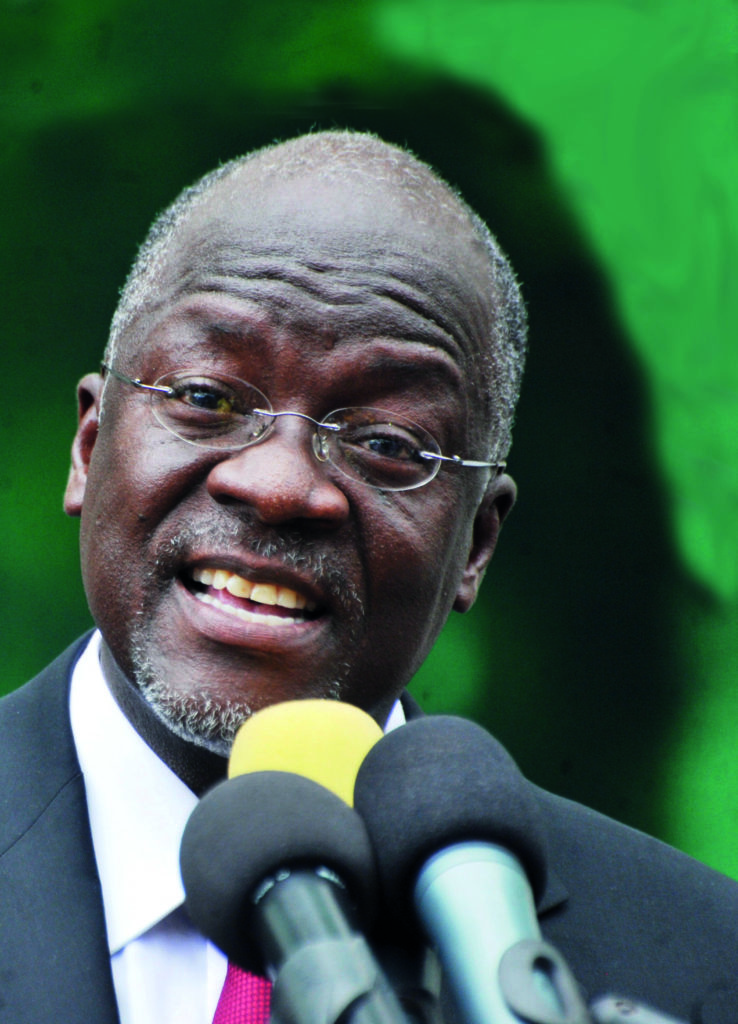
Tanzania’s President John Pombe Magufuli. Photo: Reuters/Sadi Said
Tanzanian president John Magufuli quickly became power struck once in office
Tanzanian president Dr John Pombe Magufuli has an uncanny ability to undermine his own anticorruption crusade through his intolerance of criticism, particularly on social media.
Few observers could have predicted the transformation of Dr Magufuli from a diligent but low-profile minister into an impulsive and uncompromising head of state. With Magufuli determined to refashion the nation in his own image, Tanzania’s president warrants greater attention.
In July 2015, Chama cha Mapinduzi (CCM) – Tanzania’s “party of the revolution” – faced a dilemma. Having governed the country since independence, CCM grandees were out of touch with the under 35s, which account for 60% of registered voters. An opposition coalition, galvanised around promises to root out corruption and reform the United Republic’s lopsided constitution, posed an unprecedented threat.
Unable to unite behind a presidential candidate ahead of the October 2015 elections, CCM structures rejected the two favourites in the race: Bernard Membe, an ally of outgoing president Jakaya Kikwete, and former prime minister Edward Lowassa, who later defected to the opposition. Instead, the party opted for a consensus candidate, Dr John Magufuli.
A former chemistry teacher who had served in government since 1995, Magufuli’s name was not associated with corruption – a remarkable feat in a party known for attracting individuals seeking lucrative state contracts. The fact that Magufuli lacked his own political base was viewed by many CCM elders as an asset rather than a liability. When Magufuli promised voters an unprecedented anti-corruption drive, alongside investment in infrastructure and industry, doubtless many in the party hierarchy regarded this as mere rhetoric. Such under-estimation will have cost them dearly.
Since his election two years ago, Magufuli has tackled – to different degrees – the vested interests of Tanzanian elites. In an uncompromising move to cut civil service profligacy, the president banned the use of hotels for meetings, cutting off a lucrative source of business for the hospitality sector. He also placed restrictions on foreign travel, constraining officials’ access to foreign capitalsand capital. Government ministries and hospitals found that the president liked to arrive unannounced, “managing by walking about”. Unprecedented and unrealistic demands were made of the Tanzania Revenue Authority (TRA), with officials fired for failingto hit their targets and pursue the politically connected.
It remains unclear whether such reformist zeal is indeed genuine, or merely a calculated ploy to rally supporters and destabilise opponents. It was not until July 2016 that Magufuli became chairman of CCM, but he made immediate plans to overhaul the party’s structures. The size of the national executive committee was reduced from 380 to 183, and the central committee from 34 to 24, while individuals were barred from holding more than one position.
Although undoubtedly bloated, these organs did play an important role in resolving disputes and forging consensus within the party. The president may be hoping that renewed competition between individuals will distract them from scrutinising his actions, or that those who share his fanaticism are able to advance.
He should, however, be alive to the risk that this could embolden “political entrepreneurs” whose declining fortunes are rumoured to be responsible for a surge in the number of non-performing loans. Publicly at least, Magufuli claims to be prepared for the departureof Tanzania’s business elite from the ruling party, arguing that CCM would benefit from greater proximity to the grassroots.
Yet, the president’s gradualist approach to the energy sector, historically the primary source of corruption scandals, indicates that he may be allowing a degree of continuity amid a barrage of change. The national power company, Tanesco, remains heavily indebted as a result of unaffordable contracts with independent power providers. In any other domain, Magufuli would have ordered for these agreements to be torn up—but he hasn’t.
He actually blocked a tariff increase which could have gone some way to easing Tanesco’s burden, claiming that it would undermine his commitment to provide industry with cheap energy. Magufuli’s real motive may, however, be to maintain a lucrative source of rents for the politically connected.
Although no globetrotting president, Magufuli has sought access to international capital. The World Bank has offered $2.4 billion in concessional financing for upgrades to major roads and eight cities. China’s Exim Bank was reported to be offering $7.6 billion in financing for a standard gauge railway linking Dar es Salaam to Uganda, Rwanda and Burundi.
However, in April 2017 the Tanzanian government announced that it would pay the first $400 million. The government plans to issue a Eurobond in 2017/18, although it has yet to complete the prosecution of individuals who allegedly shared a $6 million kickback relating to a $600 million private placement organised by the London offices of Standard Bank, in March 2013. Harry Kitilya, a former TRA commissioner-general, is among the accused.
Where Magufuli has pursued corruption, he has taken a short-term and potentially counter-productive approach. Impulsively hiring and firing civil servants – and contradicting cabinet ministers – displays a disregard for conventions.
Claiming that “judges are corrupt” does nothing to inspire confidence in the judiciary, or to deter malfeasance. Two accountability mechanisms that flourished under Kikwete – the Controller, the Auditor-General and the parliamentary Public Accounts Committee – have been muzzled. Debates in the National Assembly, which used to be broadcast on state TV, are no longer televised in line with “cost-saving measures”.
Tanzania’s armed forces and security services are perhaps the only groups to prosper under Magufuli. Officers have been appointed as regional commissioners, while military spending has increased. As commander-in chief, Magufuli has instructed his forces to intimidate political opponents – both on the mainland and in Zanzibar, where a farcical re-run election was held in March 2016.
Nicodemus Minde, a PhD candidate at United States International University-Africa, identifies “the deployment of troops drawn from the mainland” as having exacerbated tensions between the United Republic’s constituent parts and contributed to “widespread anxiety and fear” on the Isles.
CCM politicians have not been spared the coercive approach. When Nape Nnauye prepared to address the media following his removal as minister of information, a plainclothes security operative threatened him with a firearm. Nnauye, who had been criticised for imposing the draconian Media Services Act on Tanzania’s fourth estate, suddenly became a martyr for free speech.
Such episodes display the president’s Achilles’ heel. By refusing to countenance criticism, Magufuli has provided an otherwise dormant opposition with a sense of unity and purpose. Rather than allowing political opponents to express themselves, and to disagree among themselves, they have found common cause in resisting him, and his perceived despotic tendencies.
In March 2017, the Tanganyika Law Society (TLS) elected Tundu Lissu, an advocate and opposition MP, as its president. It is unlikely he would have won this position had he not been victimised by the authorities. Lissu had been charged with sedition over his take on Zanzibar’s farcical re-run election, and this provided the MP a platform from which to brand Magufuli a “petty dictator”.
When Magufuli told the TLS it “must observe neutrality” and the legal affairs minister, Harrison Mwakyembe threatened to dissolve the society if it “continued to act as a political party”, the lawyers knew how to vote. Tanzania’s sclerotic bureaucracy has too been subjected to the Magufuli treatment.
In promising to shift the seat of government from Dar es Salaam, on the coast, to Dodoma, in the interior, Magufuli rekindled the dream of Tanzania’s founding president, Julius Nyerere. Yet a combination of State House diktats and inadequate planning could turn a nationalist pledge into a political liability. Magufuli may want civil servants to be away from the distractions of the commercial capital, but a bloated bureaucracy cannot move 440km overnight.
According to the 2012 census, the city of Dodoma had a population (410,000) smaller than the number of public servants in Tanzania (435,000). Even if the necessary offices can be built, where will their families sleep, receive medical attention and go to school? Lessons have not been learned from an earlier promise to provide free secondary education without concomitant investment in teachers, textbooks, desks or school premises.
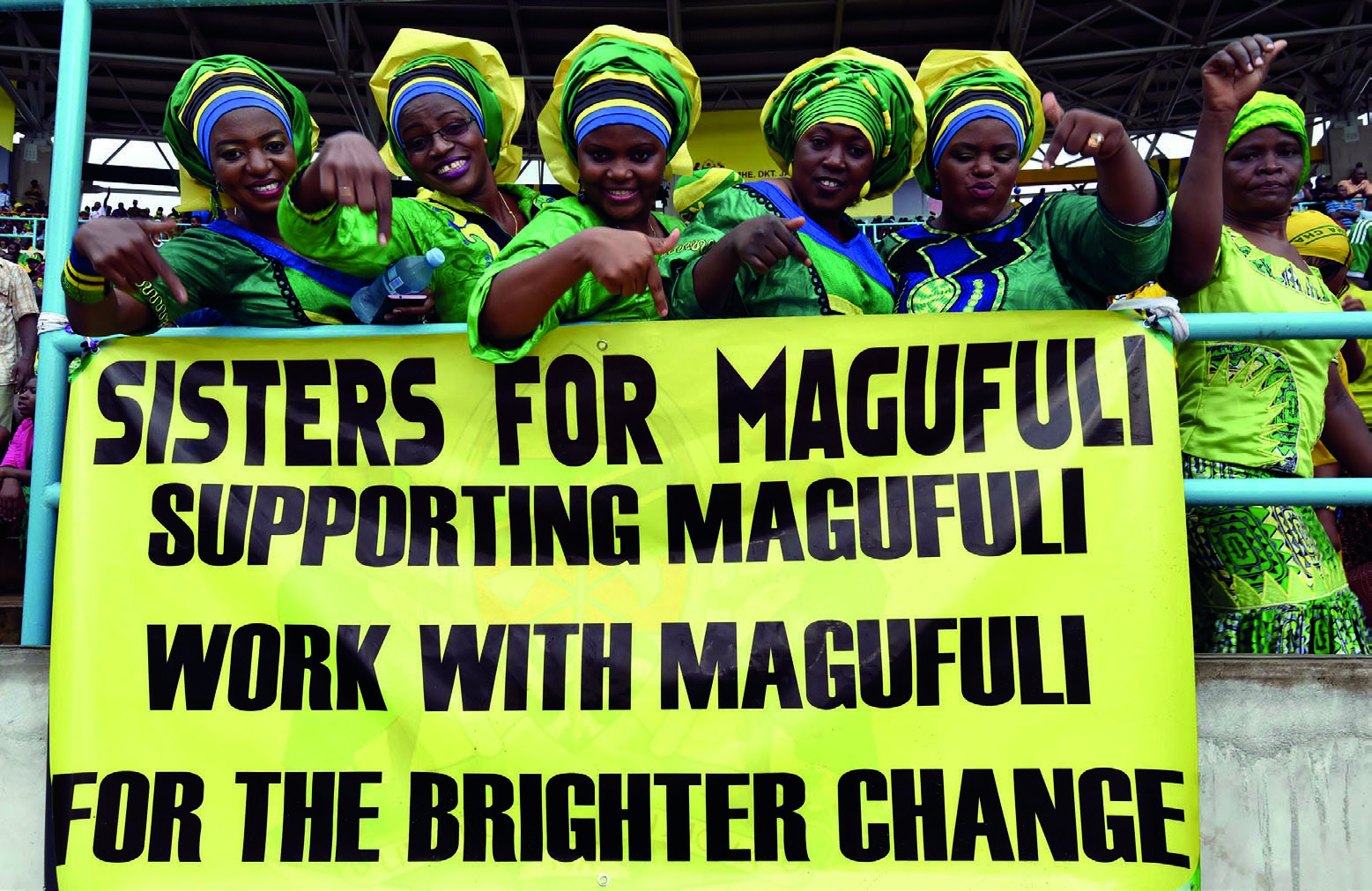
Uhuru Stadium, Dar Es Salaam. Photo: Elmond Jiyane, GCIS
Constantine Manda, a Tanzanian doctoral researcher at Yale University, identifies significant parallels between Magufuli and his predecessors. “Mwalimu Nyerere employed the security services to suppress political opponents; Ali Hassan Mwinyi fired ministers who deviated from the State House line; Benjamin Mkapa imposed austerity and overhauled the public service and Kikwete attempted to silence the critical press,” he told Africa in Fact. “The ruling party’s 2015 campaign song, CCM ni ile ile (the same CCM), stressed the potency of continuity.”
Perhaps it is Magufuli’s audacity that distinguishes him most from previous presidents. Few leaders would be bold – or foolhardy – enough to pursue such radical reforms while relying solely on the ruling party’s draconian playbook to quell dissent. Magufuli may believe that the key to appearing strong is to suppress the weak, but without a significant base in Tanzania’s ruling partyor an ability to spot problems on the horizon, this bulldozer may soon run out of road.


